Denzil Hurley
Take a stick to it, put it on a line, Sep 8 – Oct 23, 2016
Past: 333 Broome St
Installation view, Take a stick to it, put it on a line, Canada, New York, 2016
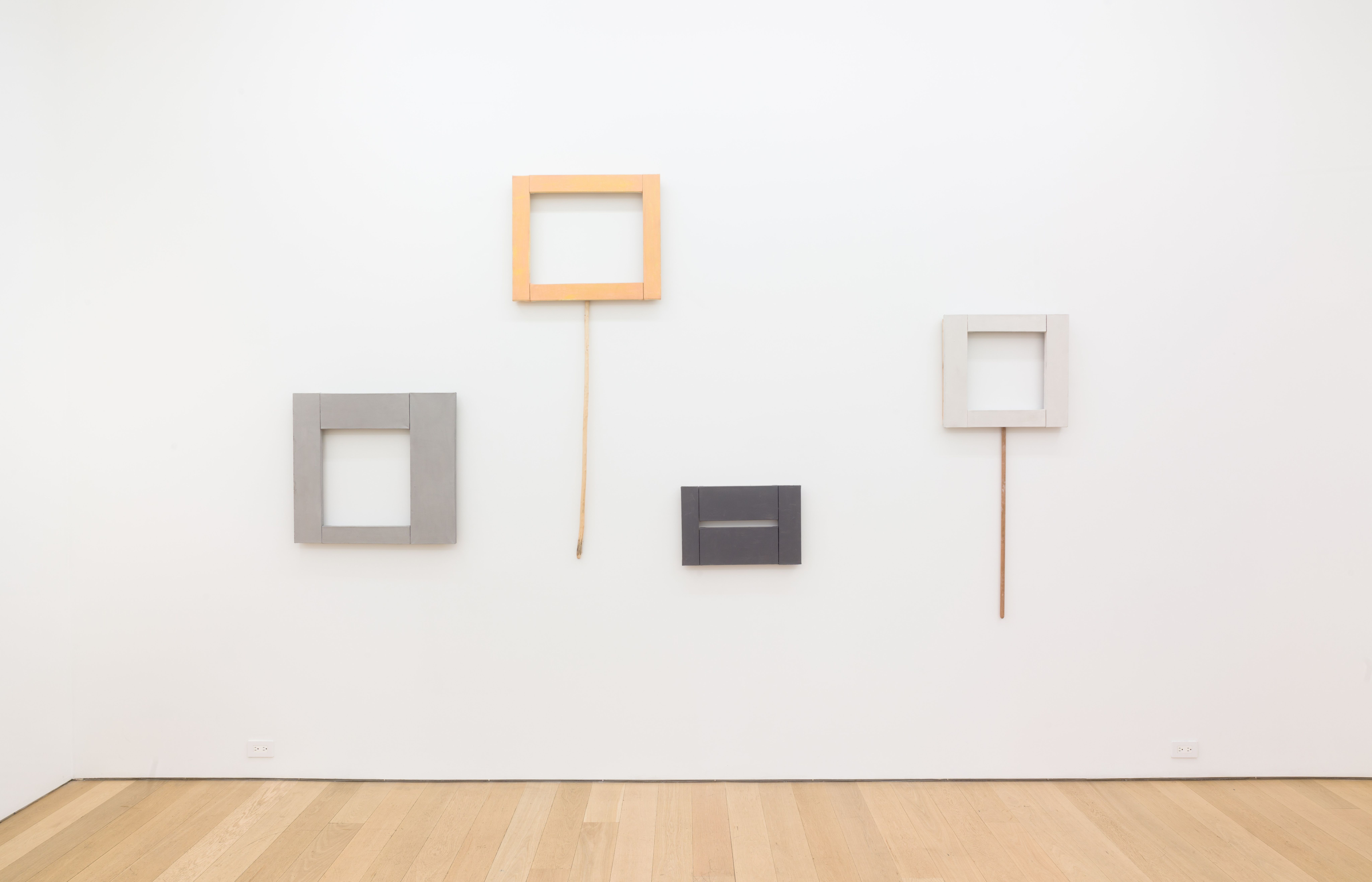
Installation view, Take a stick to it, put it on a line, Canada, New York, 2016
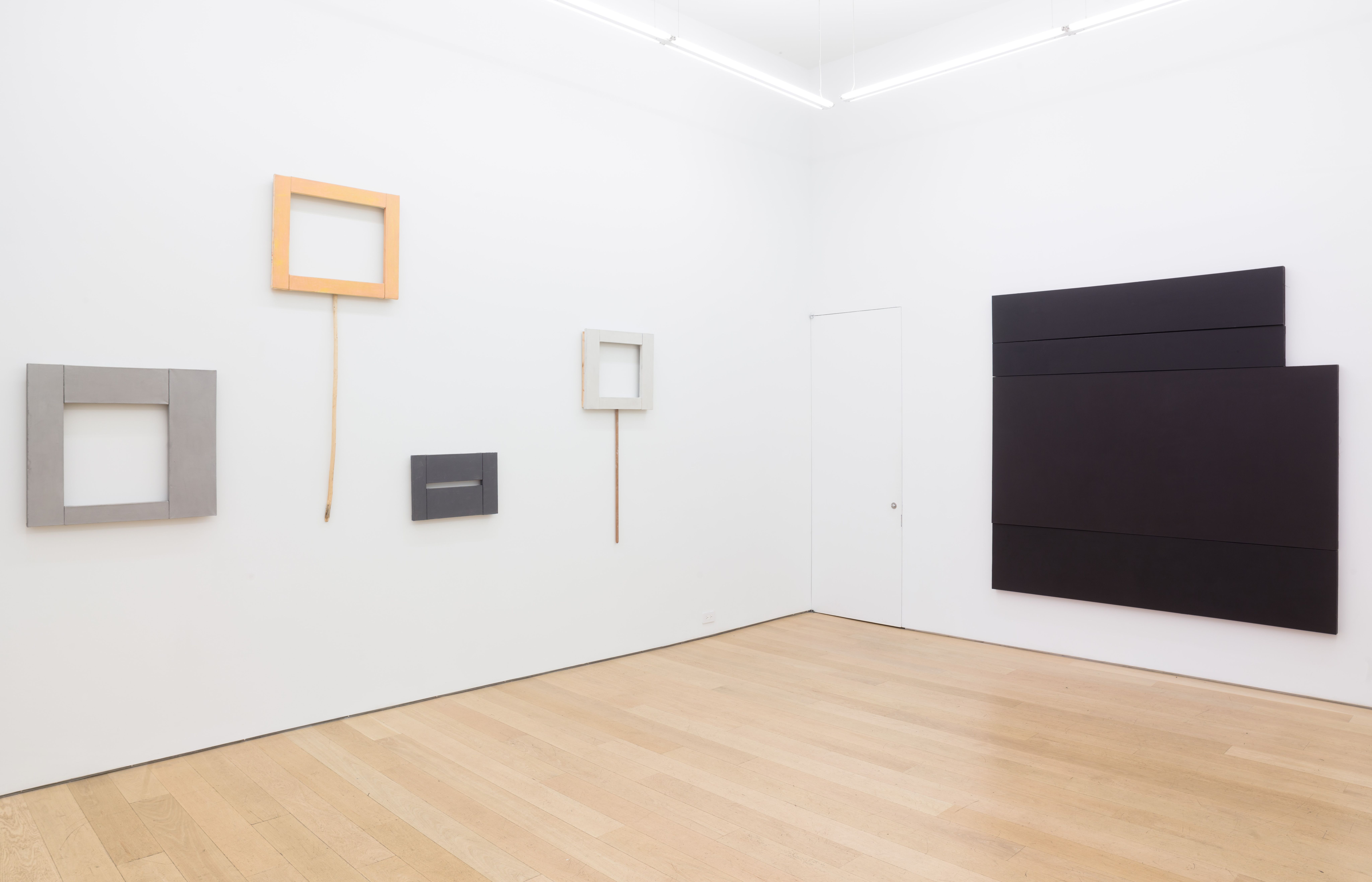
Installation view, Take a stick to it, put it on a line, Canada, New York, 2016
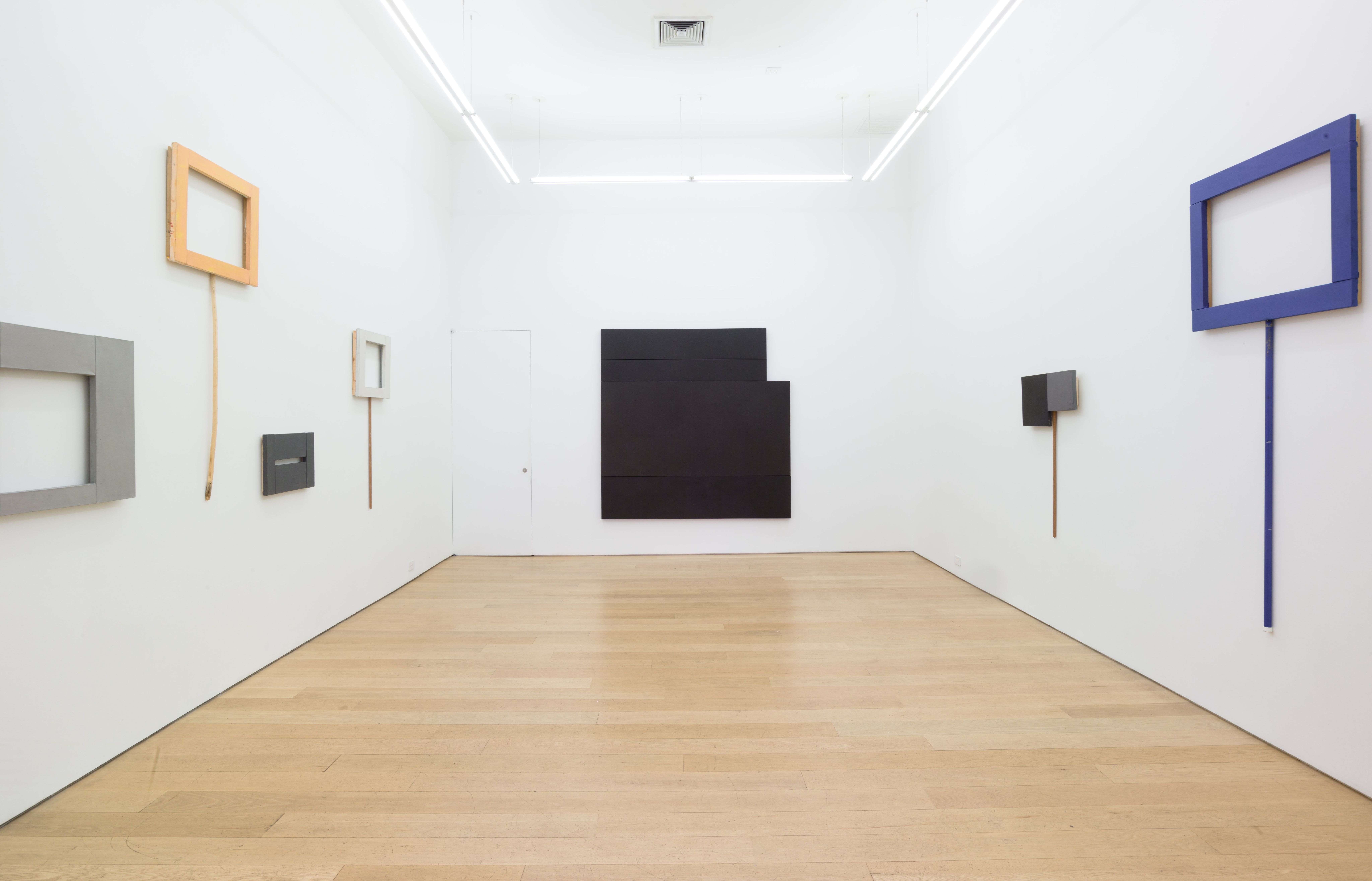
Installation view, Take a stick to it, put it on a line, Canada, New York, 2016
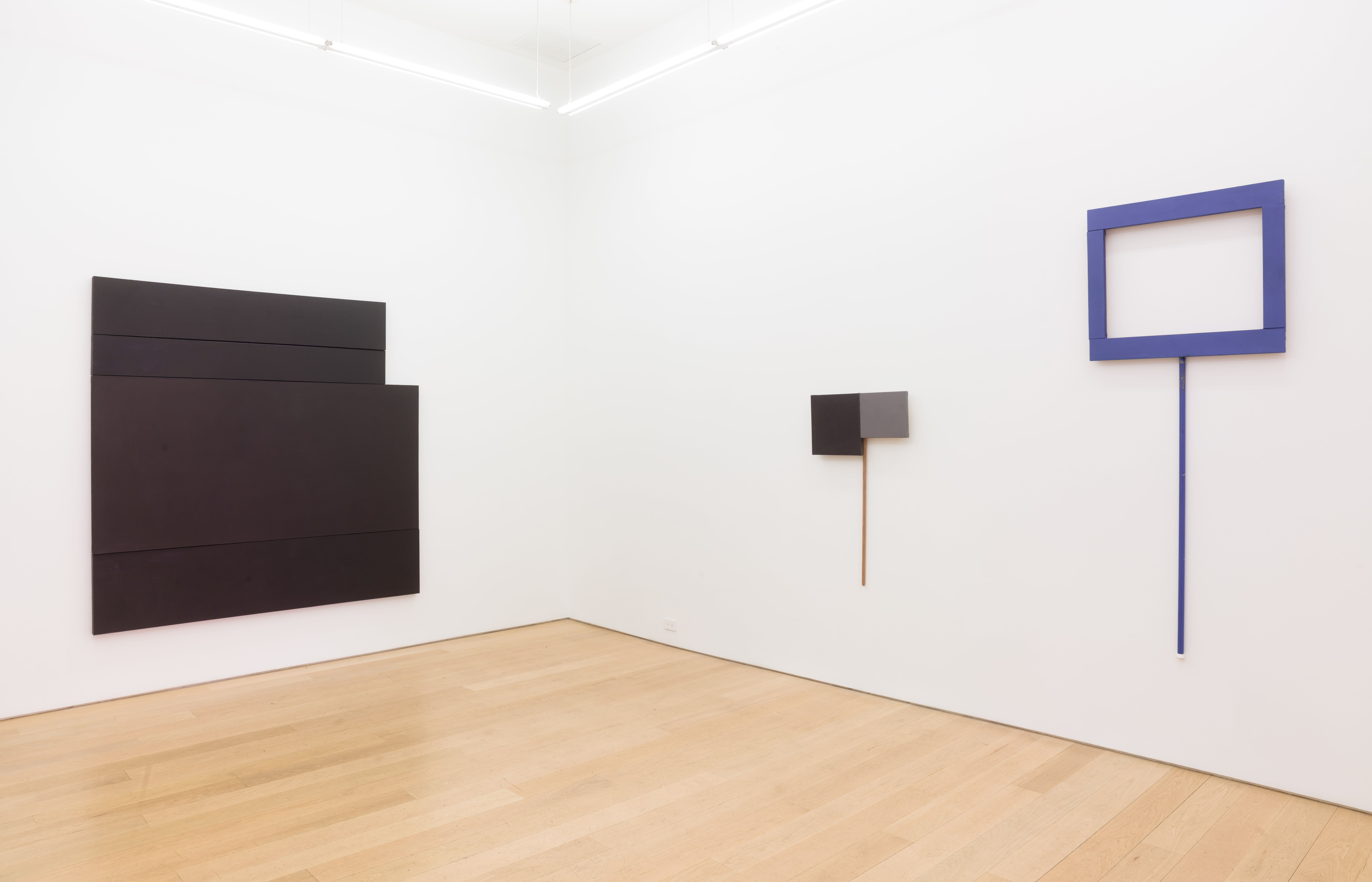
Installation view, Take a stick to it, put it on a line, Canada, New York, 2016
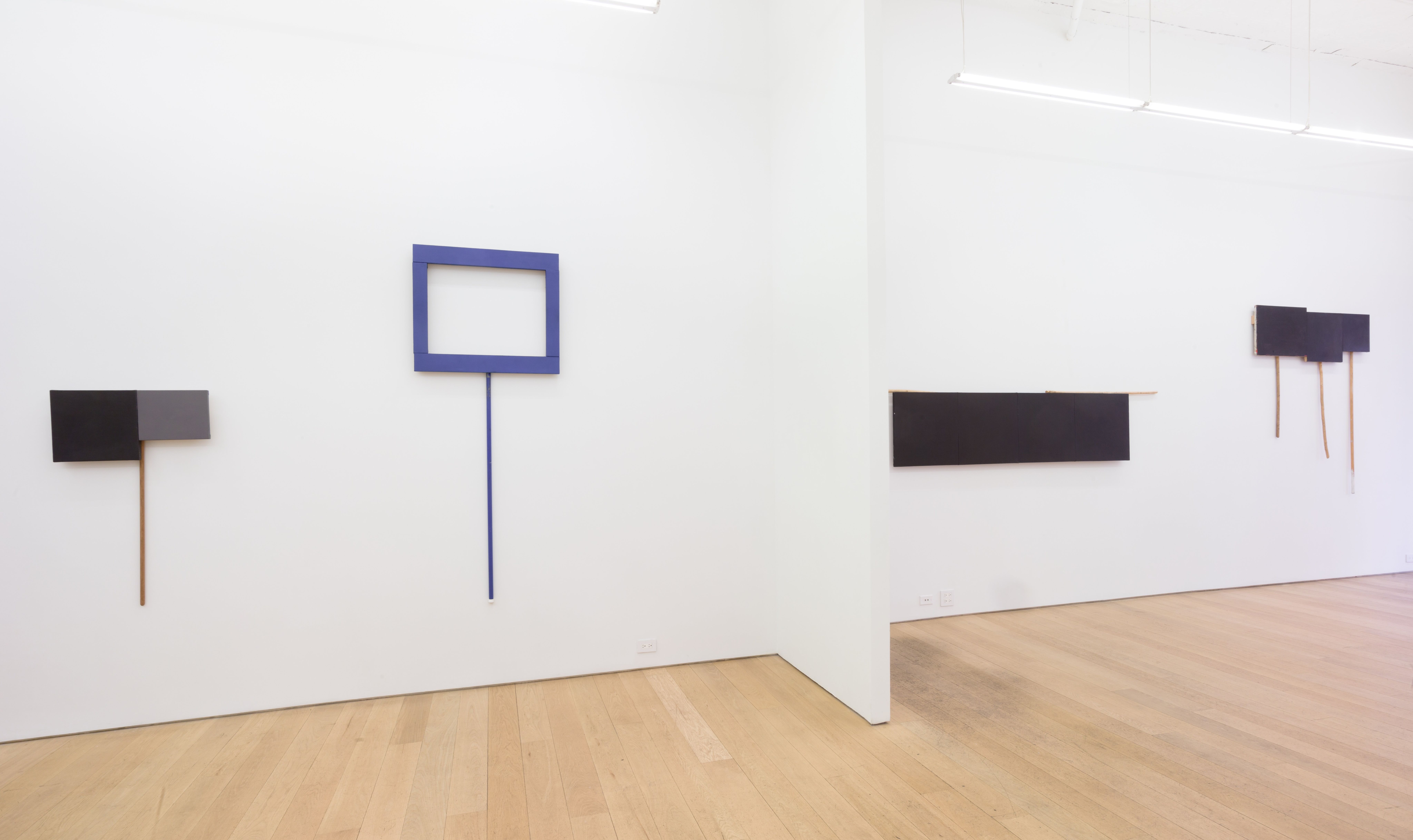
Installation view, Take a stick to it, put it on a line, Canada, New York, 2016
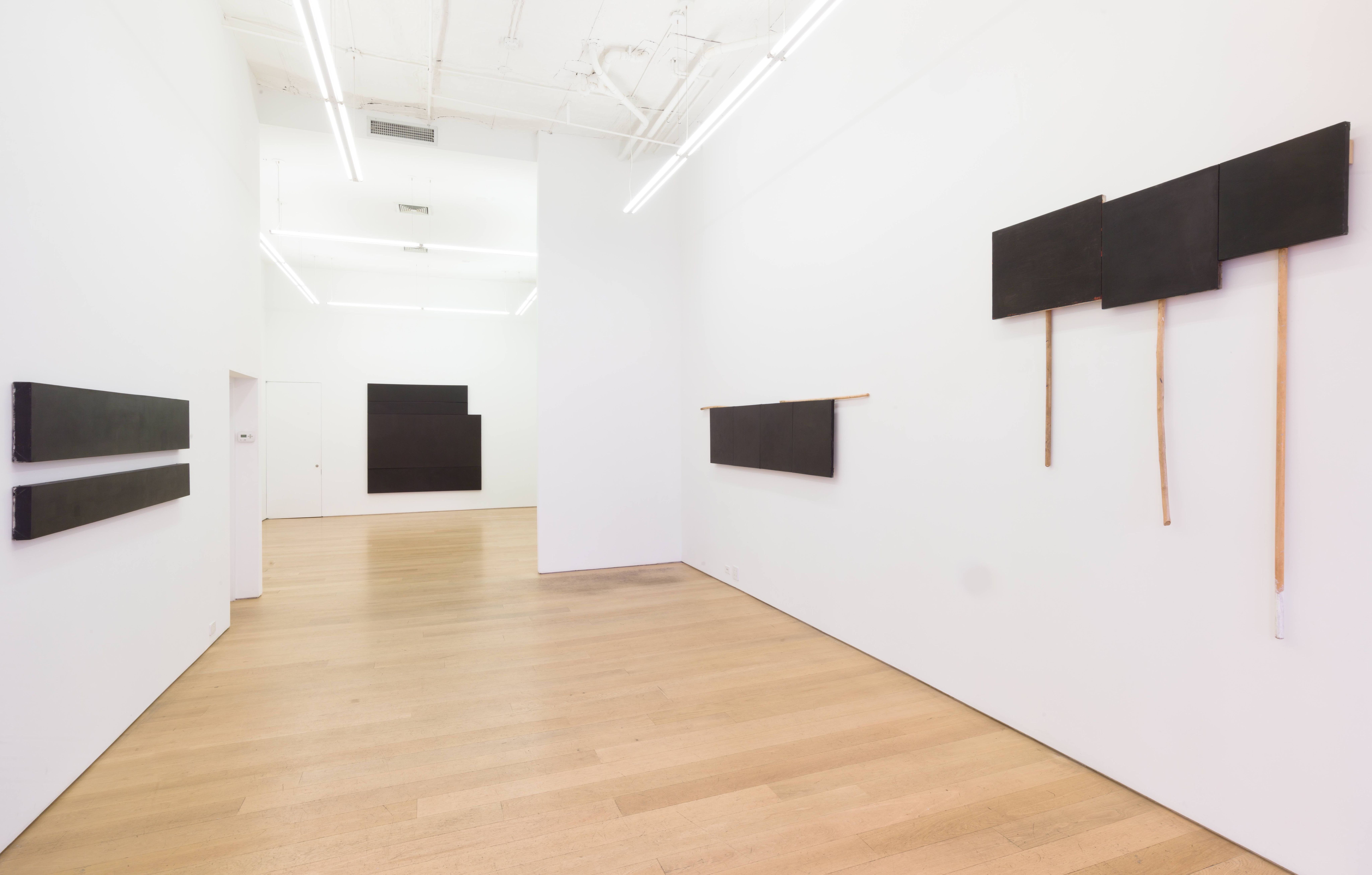
Artworks
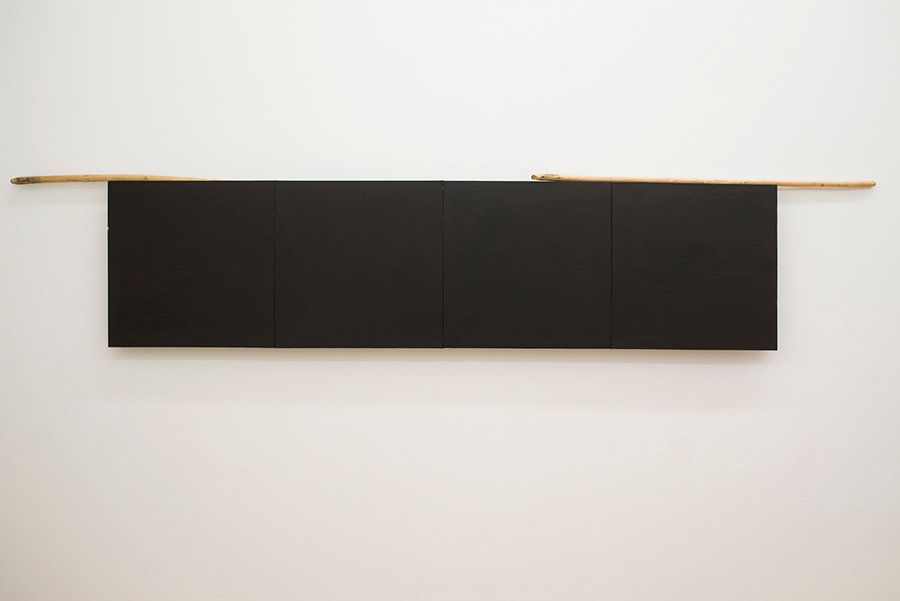
Denzil Hurley,
4 Square (s) on a Line #2,
2015–2016,
22 ½ × 156 ½ in (57.15 × 397.51 cm)
Oil on linen with stick line appendages
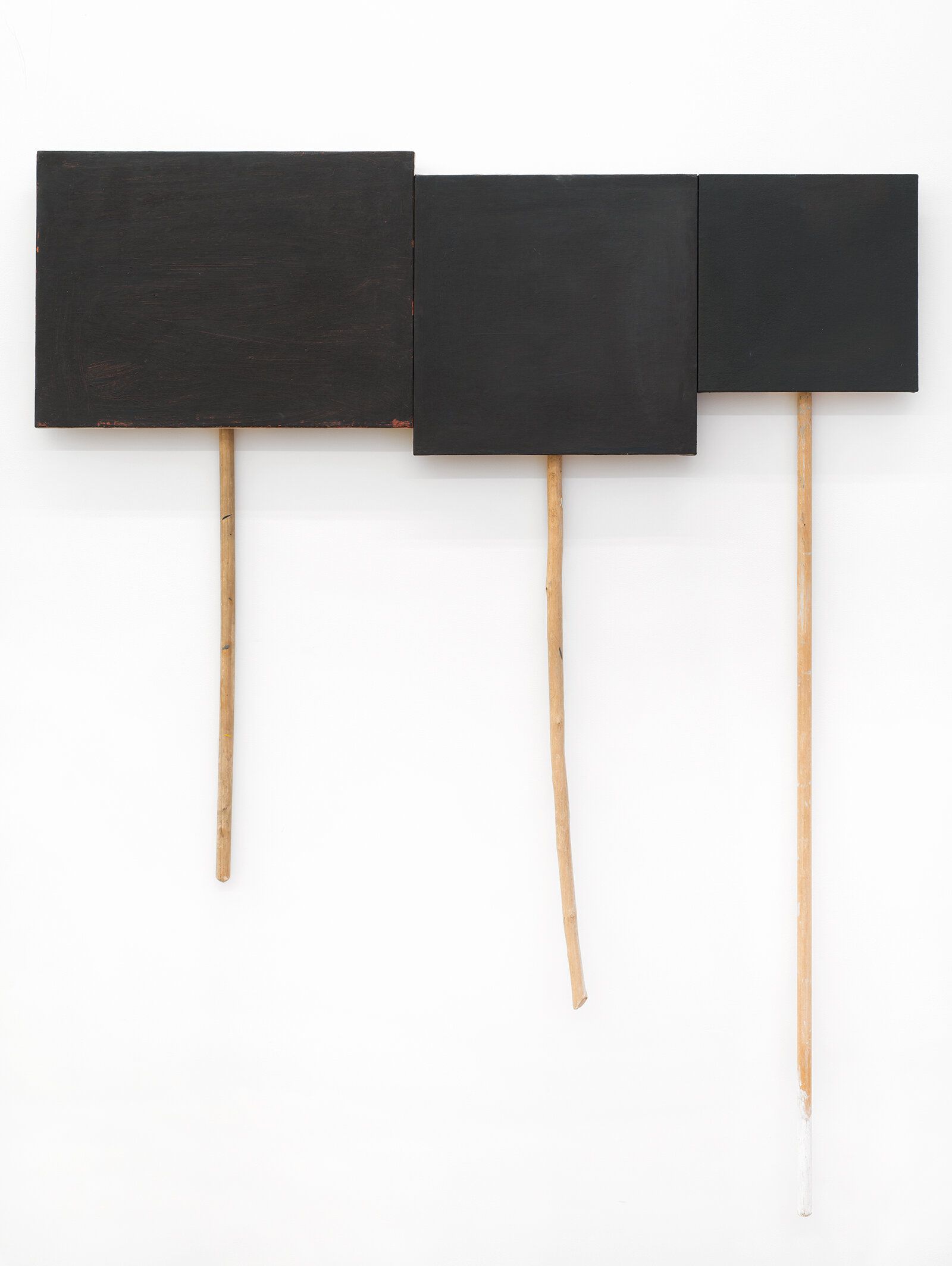
Denzil Hurley,
3 Panel Glyph #2,
2012–2014,
60 × 56 in (152.40 × 142.24 cm)
Oil on canvas on panel and sticks
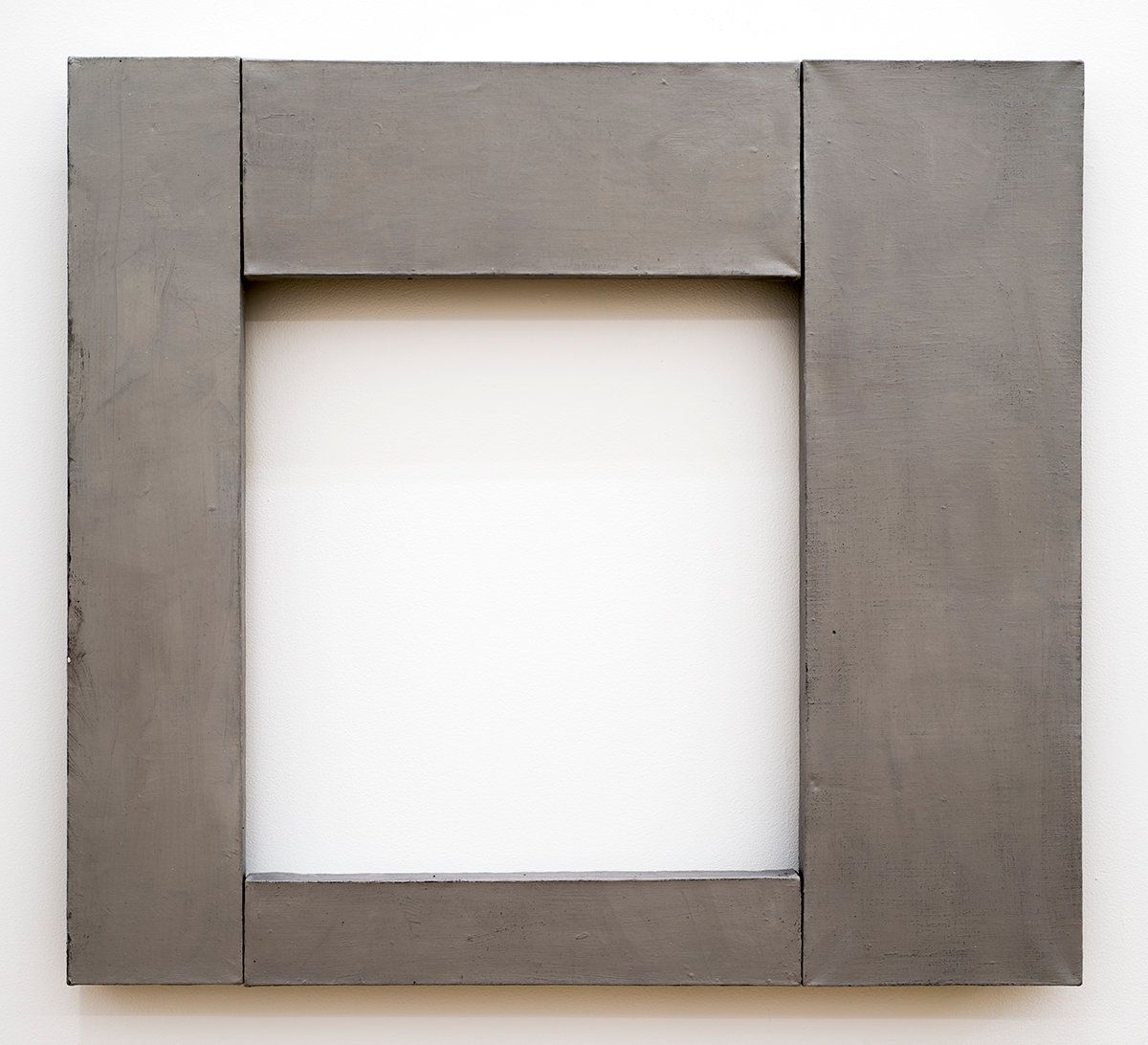
Denzil Hurley,
Grey Glyph #1,
2015–2016,
27 × 29 ½ in (68.58 × 74.93 cm)
Oil on linen
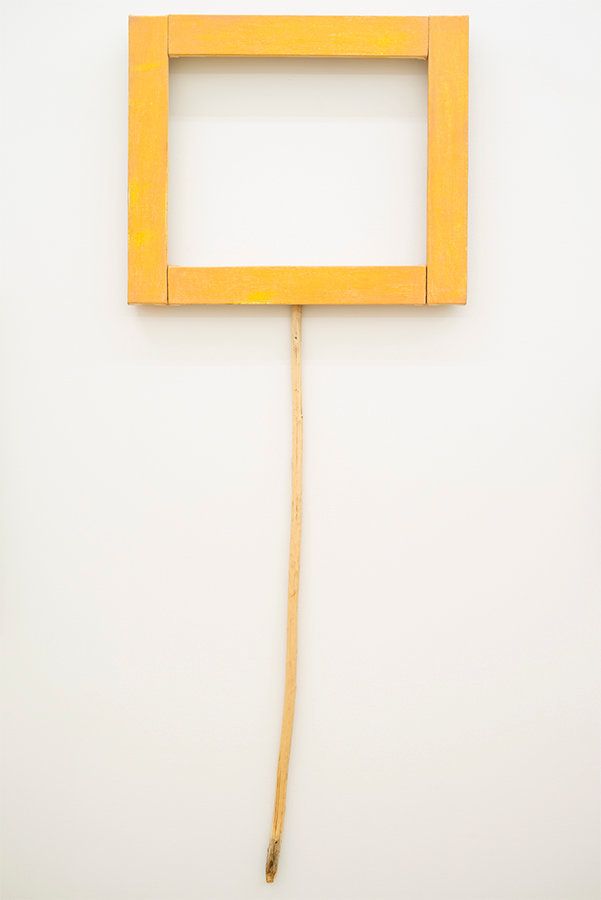
Denzil Hurley,
Yellow Glyph #1,
2012–2013,
22 × 23 in (55.88 × 58.42 cm)
Oil on linen with stick attachment
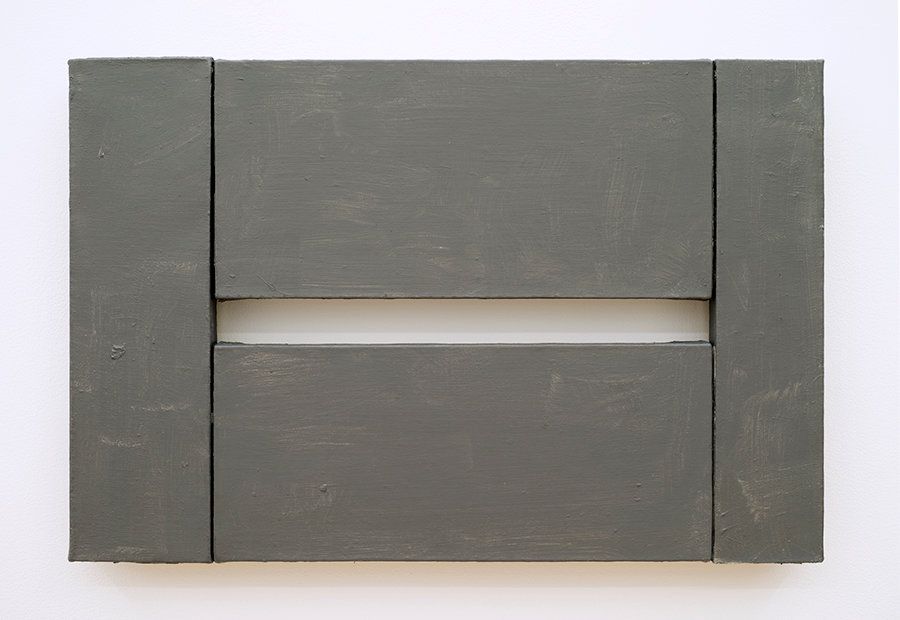
Denzil Hurley,
Slat Glyph,
2016,
14 × 21 ½ in (35.56 × 54.61 cm)
Oil on linen
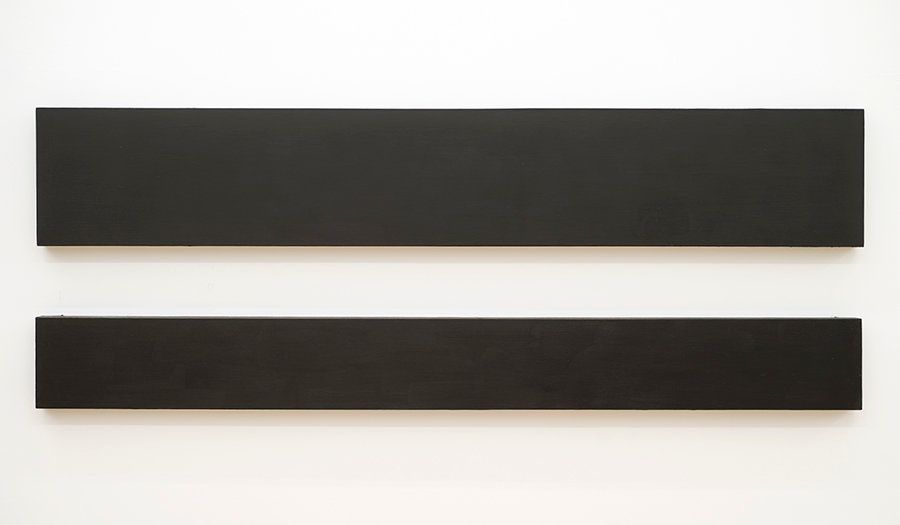
Denzil Hurley,
Equal/Unequal #1,
2014–2015,
23 × 73 ¼ in (58.42 × 186.06 cm)
Oil on linen
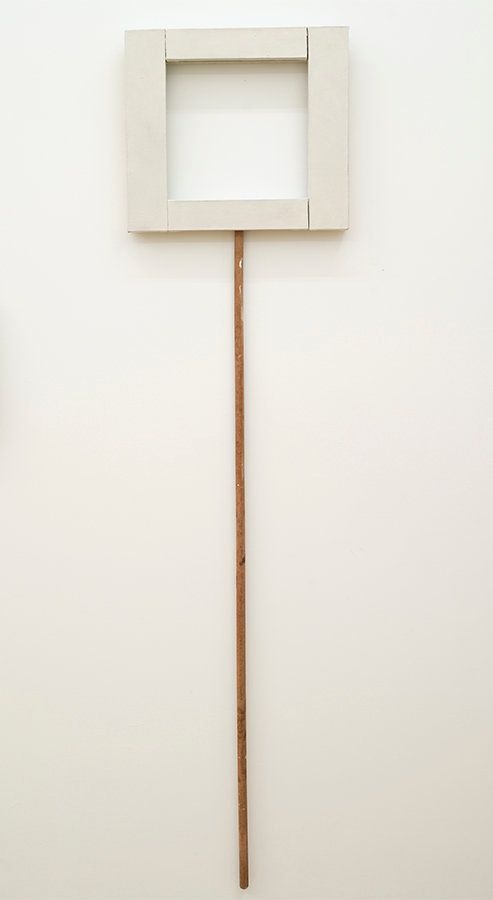
Denzil Hurley,
White Glyph #1,
2012–2014,
20 ¼ × 22 ½ in (51.44 × 57.15 cm)
Oil on linen with stick attachment
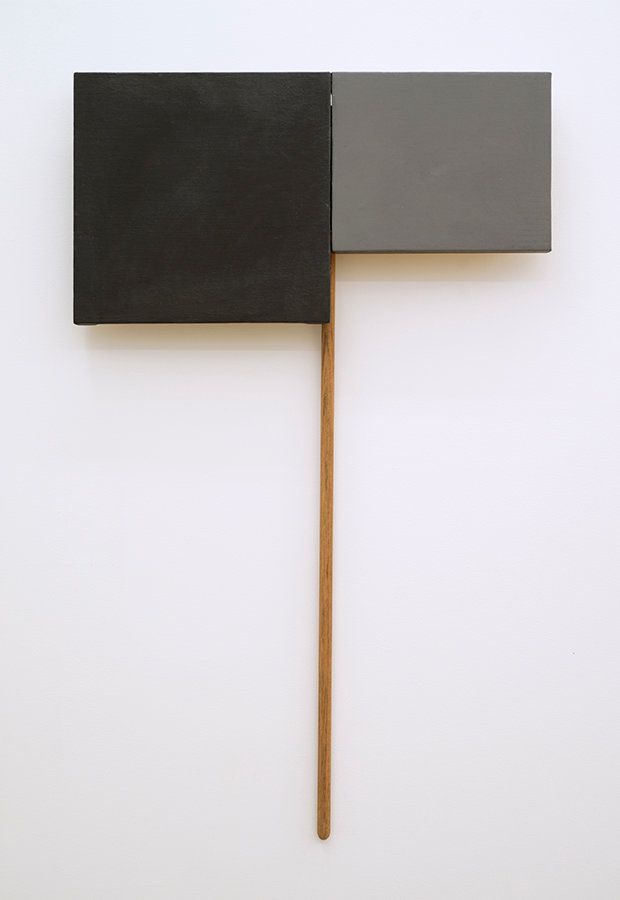
Denzil Hurley,
Coupled Glyph #1,
2016,
43 ½ × 26 in (110.49 × 66.04 cm)
Oil on linen with brown stick attachment
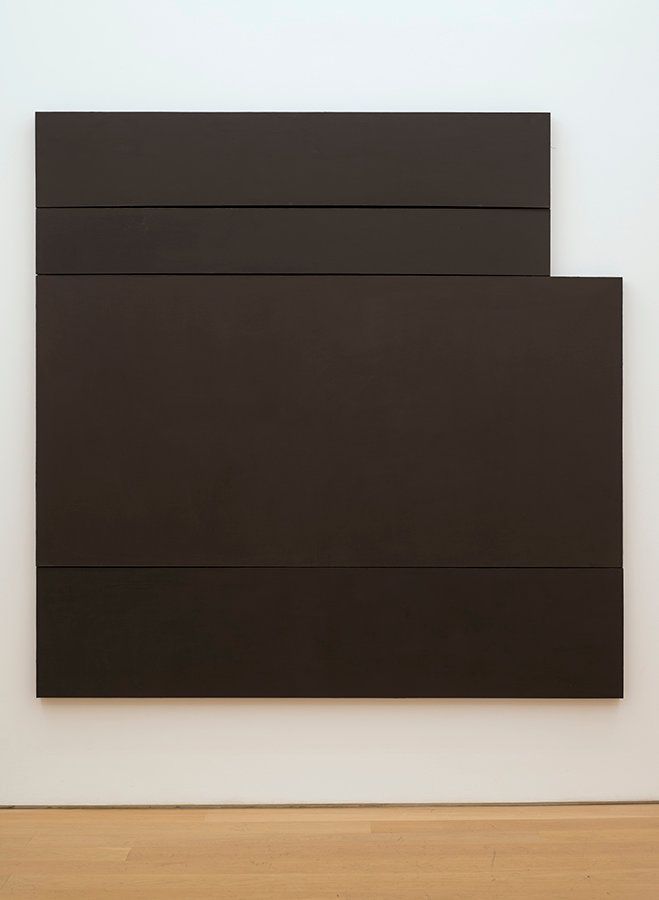
Notch Glyph #2,
2015–2016,
70 × 80 in (177.80 × 203.20 cm)
Oil on linen
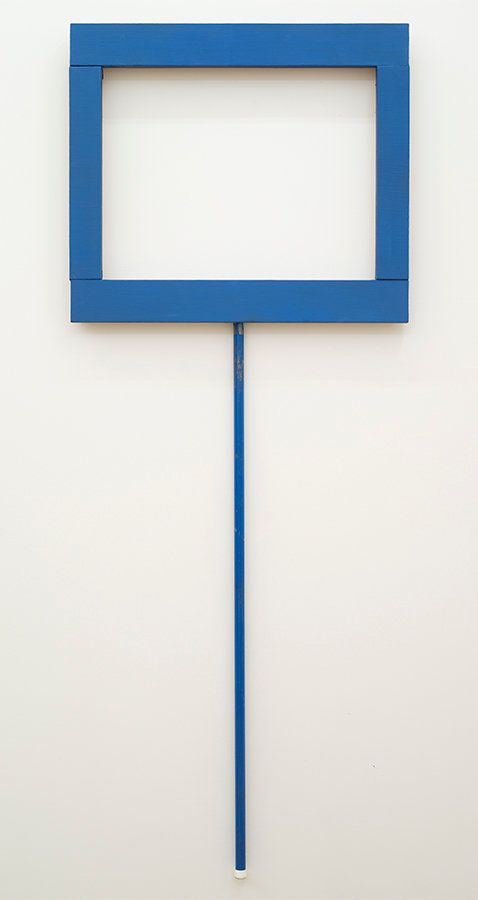
Denzil Hurley,
Blue Glyph #1,
2011–2012,
20 × 32 in (50.80 × 81.28 cm)
Oil on linen with blue pole attachment
Press Release
Canada is pleased to present Take a stick to it, put it on a line a solo exhibition by Denzil Hurley.
The paintings in this show are preceded by a series called the “redacted paintings," a group of works comprised of black and scraped-away forms that drew their shapes from reflection on the “sanitizing“ of documents and information. These paintings cast a hard light on the mentality of war, and the banal notion that the mere crossing out of lines of text could somehow negate reality, perception and history. “Take a stick to it, put it on a line” is an extension and elaboration of these ideas.
The paintings are muted. The palette is black, grey and uniformly mixed down primary colors. Physically the paintings are composed of several panels that are attached together to form bigger paintings. Many of the paintings are titled “glyph” and allude to letterforms or a sense of written communication that is embedded in the realization of each image. Hurley imbues the paintings with a wry sense of the provisional nature of human exchange.
The process is both meditatively additive and full of erasure; scars and bumps are covered and reasserted on the surfaces through the act of painting. The subtlety of the color implies depth often found in nature, mineral accretions or the density of basalt rock. Hurley’s paintings are involved with history on a multitude of levels: a personal devotion to a studio practice over time, the repurposing of modernist painting and an exploration into social realities in contemporary America.
The addition of a stick or line to the paintings implies an assertion, an action, a grievance, or a tool of ambiguous utility. The “signs” are often fused together and allude to a form of communal usage. Hurley has fashioned other paintings into “windows” and “frames” that become passages to engage the wall behind the paintings. By means of limiting his vocabulary and using stripped down forms as dynamic metaphors, Hurley’s project is linked with the trajectory of painter Kazimir Malevich and his socially progressive formal experiments. In the way that Malevich fused painting with the ambitious realities of his times, Hurley manages to convey the optimism and darkness of today.
Denzil Hurley has spoken of his need to attach his formally abstract language to something worldly, something outside of the purity implied with abstraction. The level of subtlety inside these works is testimony to the depth of his curiosity, toughness of his comprehension and his commitment to our times.
Denzil Hurley is a Seattle-based artist. He holds a MFA from Yale (1979) and a BFA from the Portland Museum School (1975). He has shown his work extensively in the US and will be the subject of a solo exhibition at the Seattle Art Museum in the spring of 2017. He is a professor of Painting and Drawing at the University of Washington.